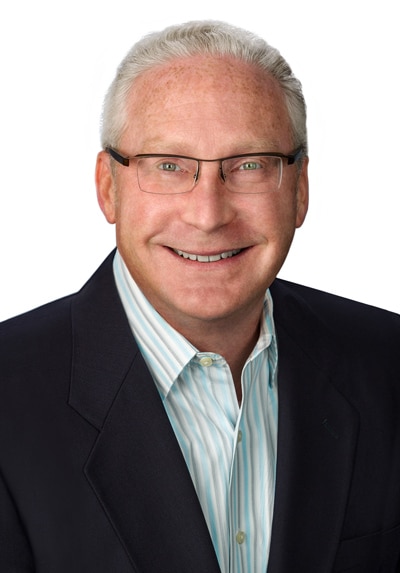It’s a career that many only dream of: representing and negotiating contracts for major sports stars. However, after spending two years in a small firm that represented about 10 percent of the players in the NBA, Gordon Richman decided it was time to move on.
“There were a couple of reasons I decided it wasn’t for me,” he says. “First, there were no professional qualifications or standards for sports agents, which led to some unscrupulous practices, like competitors trying to lure potential and existing clients away by offering or promising them whatever they thought they might want. Players didn’t know who they could trust among all the people vying for their attention.”
Personal relationships are also difficult, Richman explains. “As shown in Jerry Maguire, agents often become deeply involved in players’ personal lives,” he says. “I found that extremely challenging, especially when their sports career ended. How are you supposed to stop caring about them when they’re no longer a saleable commodity?”
The final straw was the death of all-American college basketball player Len Bias. “He was the best player at the
University of Maryland, my alma mater, and I tried to recruit him,” Richman says. Two days after the Boston Celtics selected Bias as the second overall draft pick, he died from cardiac arrhythmia induced by a cocaine overdose. “He was a great guy, and his death shocked everyone,” Richman says. “I was deeply affected by it and realized I was not cut out for this.”

Instead, Richman focused on finishing law school, and a year later, he joined Reed Smith in Washington, DC. His undergraduate training and BS in chemical engineering enabled him to play a more pivotal role than most young attorneys. As a first-year associate, Richman was involved in a $655 million wrongful death case involving a fire and explosion, a case that relied heavily on scientific facts and analyses. Though Richman repeatedly told the other lawyers how a gas pressure regulator worked, he was ultimately asked to handle the thermodynamics expert’s deposition. “My engineering degree enabled me to understand certain things, which gave me more opportunities,” he says. “I see myself as more of a scientist with a law degree than the other way around.”
The blending of technical and legal expertise has continued to play a major role in Richman’s career. In 1993, after six years with various international law firms focusing on areas where law and science intersect, Richman joined the legal department at Glaxo (later GlaxoSmithKline) as FDA regulatory counsel.
Richman was later promoted to director of worldwide quality strategy, and started working closely with EduQuest, an FDA-regulatory consulting firm. He joined them in 2002. While there, he made a name for himself as a regulatory and compliance expert with a laser focus on the company’s ultimate business goals.
One of EduQuest’s clients, a billion-dollar-plus medical device company, was having trouble meeting demand for its newest product. Richman walked the production floor to observe the assembly and testing processes and studied their manufacturing records. “I discovered that 80 percent of their records related to things that hadn’t gone right from the beginning—such as failed tests, nonconforming parts, and instances where something broke,” he explains. The extent of these problems was mind-boggling, but they didn’t see them as having an impact on the business. “They thought regulations were strangling them, but they had it backward,” Richman explains. “The level of nonconformance and test failures was costing them dearly. I’m pretty sure I shocked the division president when I told him their struggles were because they didn’t know how to build their product properly. This was a business problem with compliance consequences, not the other way around.”
In time, Richman was able to persuade management to re-engineer the entire production process, focusing on quality by design. This drove down the cost of nonconformance by minimizing variability in the design and production of the 350-pound medical device (which had more than 750 parts and nearly 650 assembly steps). The re-engineering cost $3.9 million and took 18 months, but increased production capacity for the device fourfold and gave the company a predictable and reliable process.
“I shocked the division president when I told him their struggles were because they didn’t know how to build their product properly.”
But the really big news was the numbers. “The ROI was $51 million a year for the life of the product,” Richman says. “They were able to accomplish that without any additional operators or equipment. The division president didn’t believe it at first. I had to assure him that I had not been involved in the financial analysis; it was his team that had, in their own words, ‘conservatively’ estimated the cost savings.”
In 2012, Richman left EduQuest to become vice president and regulatory compliance counsel for the in vitro diagnostics companies in Danaher Diagnostics Platform. His tasks run the gamut from assessing regulatory compliance requirements and risks in the various countries in which the organization operates and effectively communicating with regulatory authorities to determining the best way to conduct clinical trials.
He and his team are currently preparing for major changes in the way in vitro diagnostic (IVD) and other medical devices will be regulated in Europe. The new rules (adopted April 5, 2017, and due to be implemented in 2020 and 2022) call for stricter premarket controls, increased risk analysis, and more postmarket surveillance.
As a member of the company’s Global Privacy & Security Council, Richman also focuses on cybersecurity. He was on the front lines of this trend long before many of his colleagues, speaking on computerized system compliance and validation at industry conferences in 2002, and participating in joint FDA industry planning committees.
“This job and this industry are dynamic and unpredictable. There’s never time to be bored,” he says. “The company’s development and growth philosophy also keeps it interesting. As soon as I wrap my arms around a business entity or product line, we develop or acquire a new one, which I find incredibly exciting.”
It’s a different kind of excitement from working with NBA stars, yes, but one that Richman finds far more fulfilling.


